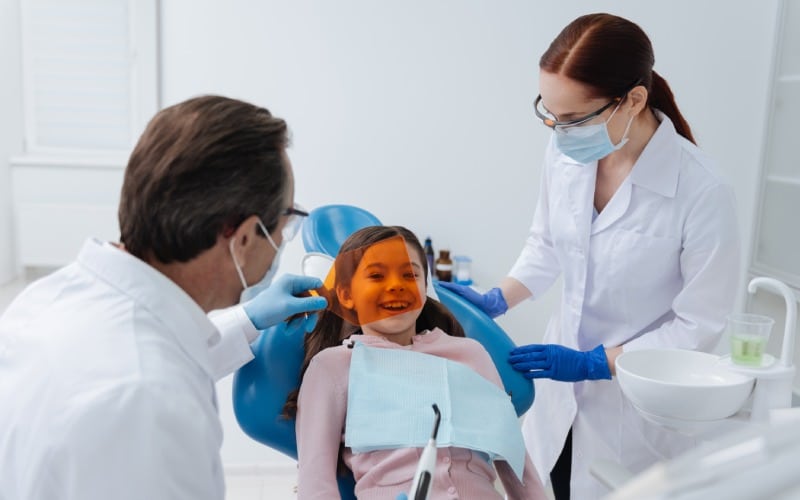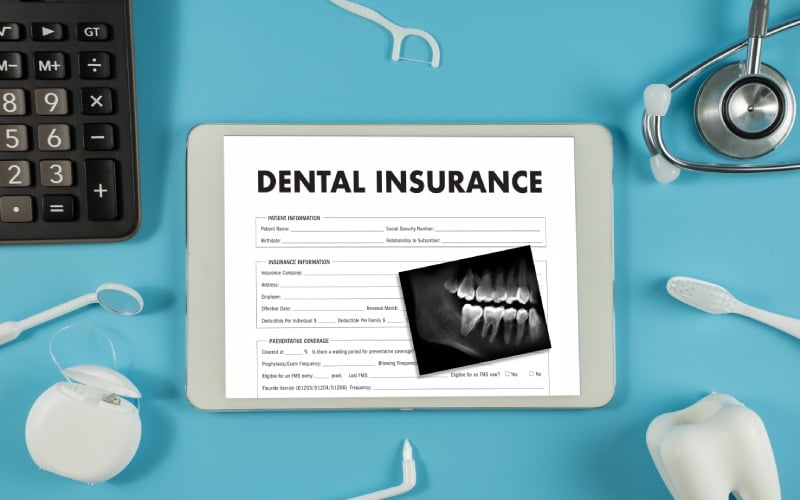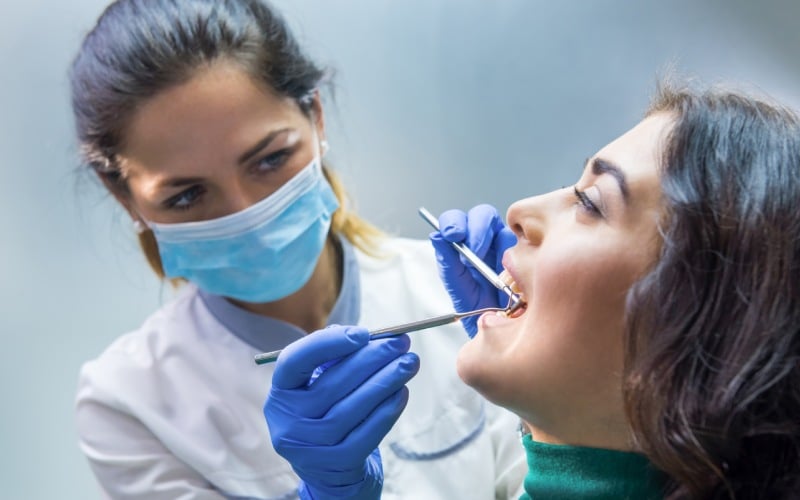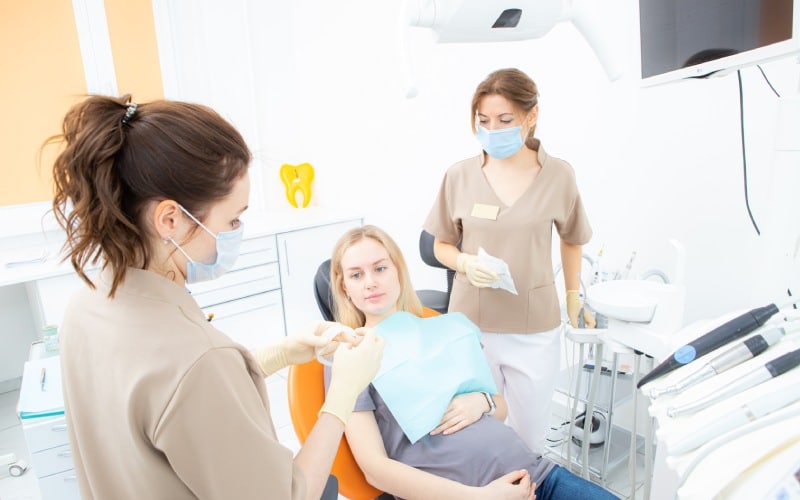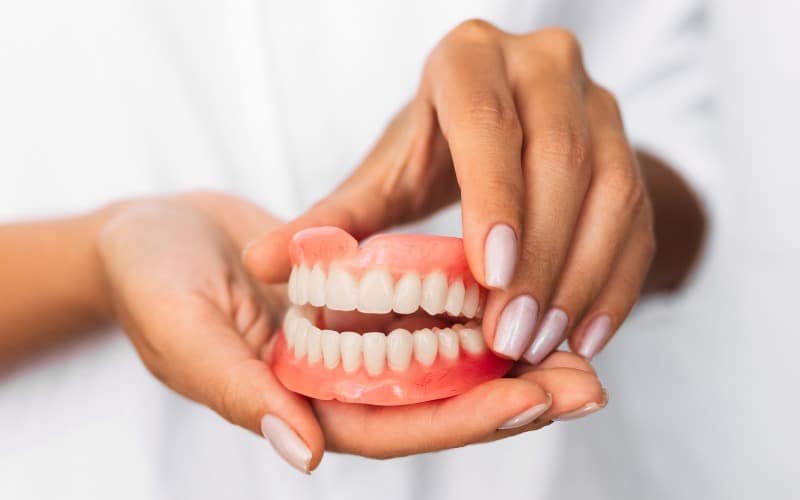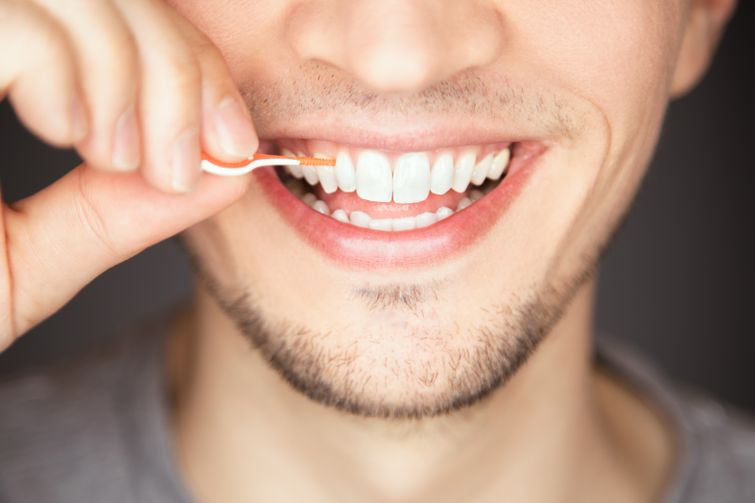
How Dentists Remove Plaque
- Posted on May 25, 2022
If it's time for your dental cleaning appointment, we know what you're likely thinking: "Do I really have to have my teeth clean? Is it necessary?"
Well, yes, you do and yes, it is.
This process helps control tartar buildup and, in turn, helps to improve and maintain your oral health. You cannot remove tartar yourself at home regardless of having a healthy brushing and flossing routine.
What Is The Difference Between Dental Plaque and Calculus?
Many patients are surprised to learn that plaque and calculus are not the same thing.

Plaque
Dental plaque is the soft, sticky film that builds up on and around your teeth – it's what you'll notice coming off on your dental floss. It develops when food particles and saliva mix together to create bacterial deposits that produce acid. This acid is what attacks your tooth enamel and can cause tooth decay, gum disease, and more. While you may brush twice daily and floss once a day, you will still produce plaque. Plaque forms very quickly, in fact, it can even harden within 48 hours and slowly start to become harder to remove.
Tartar/Calculus
Once plaque completely hardens, that's when it becomes tartar, also known as dental calculus. It will no longer be sticky or colorless, but rather, hardened tartar is a yellow or light brown color that can be quite noticeable. In order to have tartar removed, you'll need to visit your dentist.At your hygiene appointment,dental hygienists will effectively remove plaque and tartar buildup, as well as polish and floss your teeth.
How Plaque and Tartar Are Removed During Your Dental Visits
Patients often do not like hearing or feeling scraping when they're having their teeth cleaned, but this is a necessary step when it comes to removing plaque and tartar buildup. The cleaning is done with the help of a handheld tool called a dental scaler which has a narrow metal end shaped like a hook. The dental hygienist will use it to clean the surface of your tooth, in between your teeth, and even below your gum line depending on how bad the tartar is. If they go below your gums, this is referred to as a deep cleaning which works a little bit differently than regular cleaning.
Deep Cleaning
Deep cleaning, also referred to as scaling or root planing, helps with controlling tartar below your gum line is essential. If left untreated, gum disease can set in. Gum disease is the leading cause of tooth loss in adults but when caught early enough, it can be reversed with the help of your dental professional and exceptional at-home teeth cleaning routine.
After the deep cleaning, you may notice tender gums and tooth sensitivity. This is a normal part of the healing process and should subside within a day or two.
What Your At-Home Dental Hygiene Routine Should Entail
Regular brushing and flossing are obviously a critical part of your oral hygiene regime in order to prevent dental problems. This is why your dentist will suggest brushing twice daily with fluoride toothpaste – once in the morning and once in the evening – followed by flossing once a day.The more you brush and floss regularly, as well as undergo frequent cleanings, the more you can reduce the bacteria in your mouth, prevent bleeding gums, bad breath, dry mouth, and gum disease.

When To Seek Dental Care
If you notice the following, you should call your dentist's office and book a cleaning appointment:
- Bleeding gums
- Swollen or red gums
- Bad breath that won't go away
- Receding gums
- Tooth sensitivity
- Yellowing teeth
- Pus pockets on your gums
- Visible pits or brown spots on your teeth
- Loose teeth
Regular Dental Visits Are Essential For Your Oral Health
Reducing plaque and tartar can be done at home by following a healthy diet, not smoking, and ensuring you brush and floss regularly. However, tartar can still form and only a dental professional will be able to remove it. If you notice tartar buildup and are experiencing things like swollen, tender or bleeding gums, you should book a dental cleaning appointment right away.
It's always recommended to visit the dentist at least twice a year (every six months) in order to properly maintain and improve your oral health. Plus, if issues are caught early enough, they can be reversed before they worsen.

Dr. Prabhdeep Kaur, a General Dentist, has been enriching the field of dentistry with her expertise for over 13 years, having obtained her license in Canada in 2015. A holder of a BDS degree, Dr. Kaur’s proficiency spans a wide array of dental services, including General and Cosmetic Dentistry, Wisdom Teeth Extractions, Invisalign, and more. Her commitment to her craft is further evidenced by her memberships in prestigious organizations like the Ontario Dental Association, the Academy of General Dentistry, and the Royal College of Dental Surgeons of Ontario.
Renowned for her patient-focused approach, Dr. Kaur emphasizes the importance of listening and customizing treatments to meet individual needs, viewing dentistry not only as a science but also as an art form dedicated to enhancing and restoring smiles. Her dedication to ongoing education ensures she remains at the cutting edge of dental advancements.
Outside her professional life, Dr. Kaur enjoys family time, travel, and cinema, adding a relatable and approachable dimension to her persona. She is passionate about delivering professional and quality dental care, driven by her desire to connect with people and address their dental needs effectively.
Dr. Kaur’s journey in dentistry serves as an inspiration for aspiring dental professionals, advocating determination, motivation, and enjoyment in their work. Follow her journey and professional updates on Instagram @drprabh84, where she continues to inspire both her patients and peers in the dental community.

